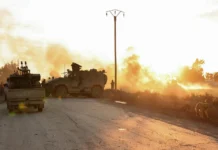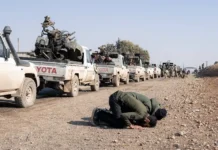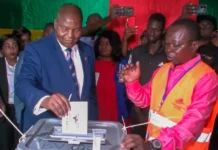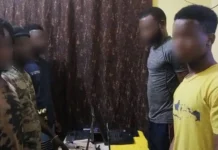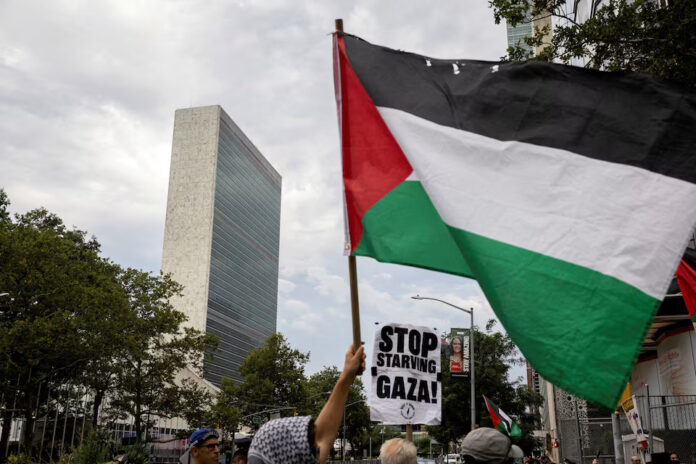
Dozens of foreign ministers convened at the United Nations on Monday for a long-anticipated conference focused on advancing a two-state solution between Israel and the Palestinians, despite high-profile boycotts by the United States and Israel. The meeting, initially scheduled for June, was postponed after Israel launched a military strike on Iran.
Co-hosted by France and Saudi Arabia, the ministerial conference seeks to establish a roadmap toward the creation of a Palestinian state alongside Israel, while safeguarding Israeli security. The gathering reflects renewed international urgency to resolve the decades-long conflict, which has escalated dramatically over the past two years.
However, the absence of the U.S. and Israel casts a shadow over the proceedings. A U.S. State Department spokesperson described the event as “a gift to Hamas,” criticizing the conference for allegedly undermining ceasefire proposals accepted by Israel that could lead to the release of hostages and de-escalation in Gaza. The U.S. had voted against the General Assembly resolution authorizing the conference last year and reiterated that it would not support actions “that jeopardize the prospect for a long-term, peaceful resolution to the conflict.”
Israel also refused to attend. Jonathan Harounoff, international spokesperson for Israel’s UN mission, said the conference “doesn’t first urgently address the issue of condemning Hamas and returning all of the remaining hostages.”
The backdrop to the meeting is the ongoing war in Gaza, now in its 22nd month. The conflict erupted on October 7, 2023, when Hamas militants attacked southern Israel, killing approximately 1,200 people and taking around 250 hostages, according to Israeli authorities. Since then, Israel’s relentless military campaign has killed nearly 60,000 Palestinians, according to health officials in the Hamas-run Gaza Strip.
Despite the deepening violence, the UN continues to advocate for the long-standing vision of two states, Israel and Palestine, living side by side within secure and internationally recognized borders. Palestinians seek statehood in the West Bank, Gaza Strip, and East Jerusalem, territories occupied by Israel since the 1967 Six-Day War.
At the conference, French Foreign Minister Jean-Noël Barrot reaffirmed France’s intent to recognize a Palestinian state in September during the annual UN General Assembly session. Speaking to La Tribune Dimanche ahead of the conference, Barrot said France would use this week’s gathering to rally international support for its initiative.
“We will launch an appeal in New York so that other countries join us to initiate an even more ambitious and demanding dynamic that will culminate on September 21,” Barrot said. He added that France expects Arab states to condemn Hamas and push for the group’s disarmament as part of any future peace framework.
France’s move comes amid growing momentum for international recognition of Palestinian statehood. In May 2023, the UN General Assembly passed a resolution recognizing Palestine as qualified for full UN membership, with 143 countries voting in favor and just nine against. While the U.S. vetoed the measure in the Security Council, the General Assembly’s overwhelming support marked a symbolic boost for Palestinian aspirations.
As global divisions over the Israel-Palestine conflict deepen, the conference represents a renewed, if contentious, international push toward peace. Yet, without the participation of the United States and Israel, two key players in any future agreement, the prospects for immediate breakthroughs remain limited.
Still, diplomats involved in the process maintain that laying the groundwork now could pave the way for eventual progress, particularly as France and other nations prepare to make concrete diplomatic moves in September.
Written By Rodney Mbua









